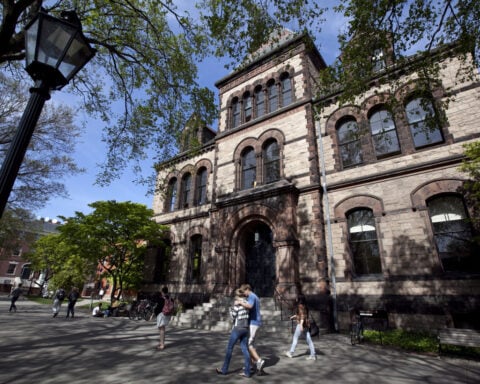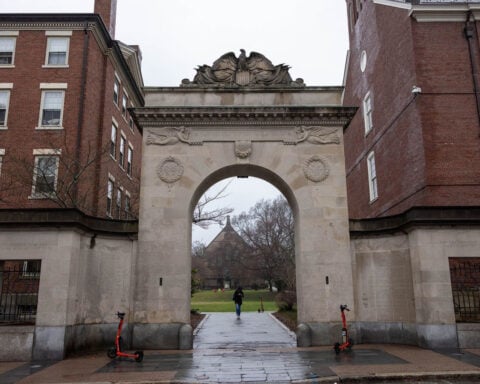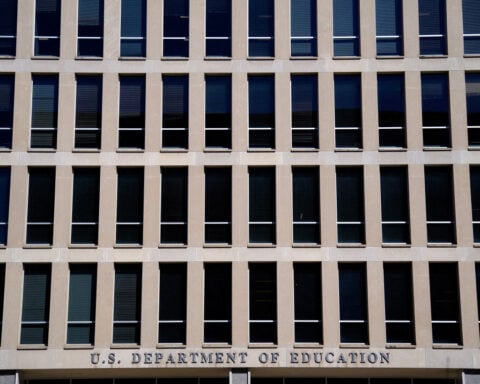Just four years ago, following the murder of George Floyd, almost every college and university in the U.S. had at least one diversity, equity and inclusion – or DEI – program. Many had existed long before. These programs ranged from DEI-related degrees and professional training to resources for culturally, linguistically and neurologically diverse students. But in the last year and a half in almost every state, 159 institutions have reduced or eliminated these programs.
New legislation in states like Texas and Florida have banned DEI programs outright. In other states, institutions are shuttering programs preemptively to avoid political pressure. This will have lasting effects.
In Texas, dozens of professional faculty and staff have already been fired. Minority students have lost access to community groups, cultural centers and resources. Furthermore, following the Supreme Court ruling in 2023 that race could not be considered in admissions decisions, scholarships for students with diverse racial identities have disappeared.
Eliminating DEI programs could have serious consequences for teaching and learning. As a scholar who researches the relationship between identity and learning, my work has shown that inclusivity is a prerequisite for how students form their identities in relation to the content they learn. For example, learning math becomes especially difficult, if not impossible, if a student does not identify positively with the subject. Math identity isn’t just based on competency. It’s also based on societal expectations, such as stereotypes of who is most likely to become a mathematician based on demographics – including racial, ethnic and gender identities.
Why identity matters in learning
Research shows that Black students are more likely to stay in college and earn a degree if they attend a historically Black institution versus a predominantly white one. Why? Because learning isn’t just about the curriculum offered. It’s also about students feeling connected to and supported by their institutions. When institutions represent a single cultural identity, students with minority identities can feel excluded and are less likely to thrive.

Students do better when they have a sense of belonging.
In general, how we view ourselves relies heavily on external validation. In fact, child psychologists strongly caution parents from labeling children by their character traits or behavior so that their identities do not become prematurely limited. For learning to take place, students need to identify with the content, which becomes especially difficult when they feel like their identities are not welcomed in the learning environment.
Effective teaching emphasizes students’ identities in order to make important connections with the learning. For example, we know that fewer women graduate in STEM fields than men. This is not because they can’t succeed in STEM – science, technology, engineering and math – but because they aren’t as likely to identify with the field. Many studies demonstrate that targeting students with certain identities for support increases their academic performance as well as the performance of other students.
More evidence of the link between identity and learning comes from the Gallup-Purdue Index. The large survey of more than 30,000 college graduates measured the academic experiences that most prepared them for life. Near the top of the results: “My professors cared about me as a person.” The goal of DEI programs is to make sure everyone feels cared about as a person. Eliminating these programs means further marginalization of students with specific identities who have historically faced discrimination.
How DEI programs ensure everyone gets to learn
Through my research, I have found that DEI training increases teachers’ awareness of diverse identities, helping them to design courses that are interesting and relevant to everyone. DEI programs also often include the creation of dedicated spaces and initiatives so that students can experience connection and support from other students like them, even when it feels like their identities are not otherwise welcome on campus.
A Gallup and Lumina Foundation report found that Black students are more likely to feel discriminated against than other students, and Black and Hispanic students are the most likely to have thought about stopping out. If all students do not feel safe and welcomed, they cannot learn.
Lawmakers can roll back DEI programs, but they cannot remove identity from the learning context. Colleges and universities continue to admit increasingly diverse student populations. Without programs of support, I believe these students are more likely to be harmed rather than helped by college.

JT Torres does not work for, consult, own shares in or receive funding from any company or organization that would benefit from this article, and has disclosed no relevant affiliations beyond their academic appointment.
Source: The Conversation

 Trump has begun another trade war. Here's a timeline of how we got here
Trump has begun another trade war. Here's a timeline of how we got here
 Canada's leader laments lost friendship with US in town that sheltered stranded Americans after 9/11
Canada's leader laments lost friendship with US in town that sheltered stranded Americans after 9/11
 Chinese EV giant BYD's fourth-quarter profit leaps 73%
Chinese EV giant BYD's fourth-quarter profit leaps 73%
 You're an American in another land? Prepare to talk about the why and how of Trump 2.0
You're an American in another land? Prepare to talk about the why and how of Trump 2.0
 Chalk talk: Star power, top teams and No. 5 seeds headline the women's March Madness Sweet 16
Chalk talk: Star power, top teams and No. 5 seeds headline the women's March Madness Sweet 16
 Purdue returns to Sweet 16 with 76-62 win over McNeese in March Madness
Purdue returns to Sweet 16 with 76-62 win over McNeese in March Madness








